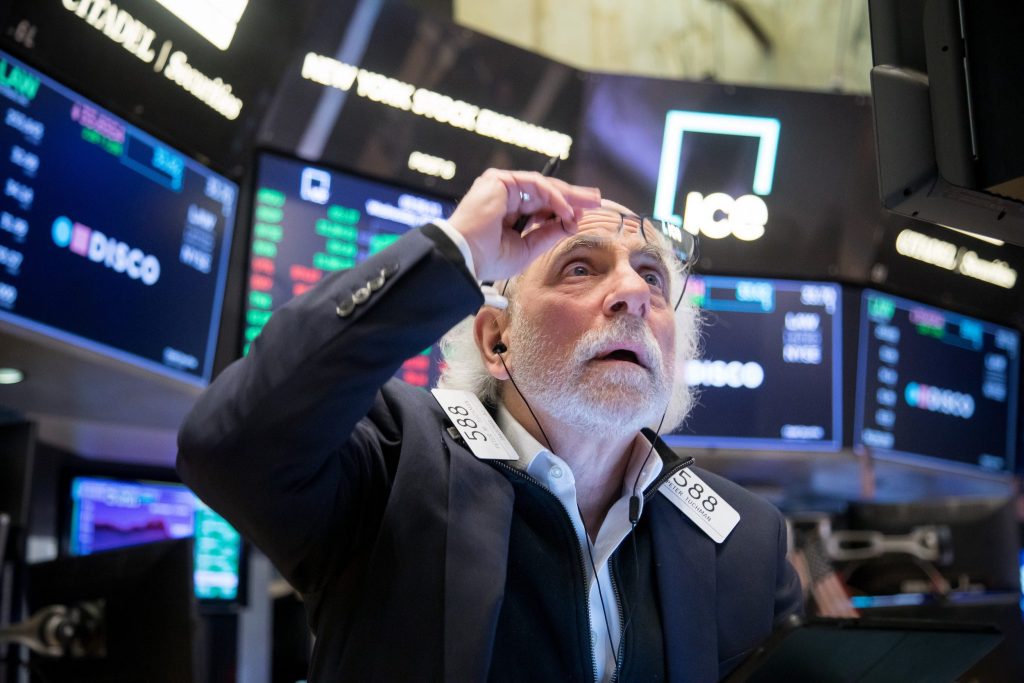- Morningstar’s top strategists, like many peers, thought stocks were overvalued coming into 2022.
- Stocks have since sold off due to 40-year-high inflation and the war in Ukraine.
- Morningstar named 7 companies that are trading well below its estimate of their fair value.
Morningstar’s outlook coming into 2022 was that US stocks were overvalued.
Dave Sekera, the chief US market strategist at the investment research and ratings firm, said there were four main reasons why he expected the market to decline in January and February.
They were that the US economy would continue growing but at a slower pace than in 2021; second, the Fed would be tightening monetary policy; third, inflation was running hot and would persist for at least the first half of the year; and finally, interest rates were expected to rise over the course of the year.
Sekera’s views were widely shared, partly because 2021 was a banner year for stocks that saw the S&P 500 rise by nearly 27%.
But the first trading day of the new year was the last time the index closed at a record high. Then, Russia invaded Ukraine near the end of February, and geopolitical risks had to be factored in.
"The biggest risk from the invasion was the increase in commodity prices, the war premium that we saw in oil, wheat, and corn and the number of the other commodities, and whether or not that would make inflation run even hotter, faster than what we originally projected for the year," Sekera told Insider.
He continued, "At the beginning of March, we actually did update our inflation forecast. We brought it up from 3.6% to 4.3% for the average rate for 2022. And we did slightly decrease our real GDP expectation for the US from 3.9% down to 3.7% currently."
Since then, a composite of all the US stocks in Morningstar's coverage universe has fallen enough that it is nearly 10% below its fair value, Sekera added. The firm estimates fair value based on its projection of a company's future cash flows and the predictability of those flows.
While Morningstar still expects inflation to run hot for several more months, the firm anticipates that it will become moderate in the second half of the year. As for why, the supply disruptions that caused inflation will work themselves out, consumer behavior will continue to normalize over the next couple of quarters, and there will be growth in the services sector.
As for energy, the firm was positive on the sector for over a year. In 2021, they viewed energy as the most undervalued sector. But energy, the best-performing sector year-to-date by far, has now run up enough that it's fully valued at this point. For those that have been overweight on energy, now is a good time to reallocate back to a market-weight position, Sekera said.
His main advice to investors now: Don't trade or time the market. Instead, aim for long-term positions. With that in mind, he added that growth-sector stocks, whether large, mid, or small cap, have taken the brunt of the selloff and are now significantly undervalued.
Sekera and Alex Morozov, Morningstar's director of equity research, Europe, shared specific stocks that the firm rates four or five stars and that it considers cheap. "These are companies that we think will be able to generate excess returns on invested capital over the long term," Sekera said.
In the communication sector, Meta (FB) and Alphabet (GOOGL) are both significantly undervalued.
Morningstar's fair-value estimate for Meta is set at $400 but it closed at nearly half that on Wednesday, at $203.63, implying up to 93% upside. Alphabet's fair-value estimate is $3,600; the stock closed near $2,665.
"One of the themes that I've been focused on this year has been the normalization in consumer behavior for the second half of the year," Sekera said. As people begin to go out more and attend public events, certain sectors will come back, specifically within services, he added.
Uber (UBER) is one of the companies set to benefit from normalization, Sekera said. It's also 5-star rated by the firm. Its fair value is $73 and it's trading near $32.
Anheuser-Busch (BUD) is another benefactor of this theme. As the service sector sees a return to event attendance, so will the alcoholic beverage space. It's currently trading near $59 and the firm's fair-value estimate is at $90.
In the arena of disruptive technologies, Sekera highlights Palantir (PLTR), which has more growth potential but remains speculative. It's currently trading near $12 and the firm's fair-value estimate is $31, which implies it would more than double if it returns to fair value.
When it comes to Asian markets, Morozov said that Alibaba (BABA) and Tencent (TCEHY) are both highly rated by Morningstar and have very attractive long-term growth potential. BABA's fair market value is $188 and TCEHY's is $108. Both are trading at prices slightly above half their fair value.
However, investors will have to keep in mind the regulatory framework in that region. Additionally, China is now battling COVID cases that have hit a two-year high, sending millions back into lockdowns.
"I think it's pretty obvious that you have to take a risk that's associated with investing in Chinese companies," Morozov said. "The regulatory environment there is highly uncertain."

